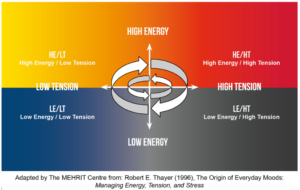 Allow me to clarify what I mean by a “contingency.” Contingencies are the “what if’s” we live with everyday. Many of us may have plans, and occasionally these plans deviate, or shift paths when something unanticipated happens. Considering these potentialities, or “what ifs,” is in fact Contingency Planning, and can lead to a very different outcome in our own emotional self-regulation when they do occur.
Allow me to clarify what I mean by a “contingency.” Contingencies are the “what if’s” we live with everyday. Many of us may have plans, and occasionally these plans deviate, or shift paths when something unanticipated happens. Considering these potentialities, or “what ifs,” is in fact Contingency Planning, and can lead to a very different outcome in our own emotional self-regulation when they do occur.
The fact of the matter is that each one of us will at one time or another face the challenges of things going awry. Things do not always happen the way we want them to. When they don’t, we can either buck-up and move on, or seek solace by complaining. The abundance of clichés or old sayings about complaining are a testament to which of the two is a more likely scenario. They can range from “nobody likes a complainer,” to “be careful what you wish for.” One of my favourites is the one that states “50% of the people you complain to don’t care that you are struggling, and the other 50% are happy that you are struggling.”
 I firmly believe that we can often do very little to alter the circumstances that unfold around us. We can, however, grow to understand and influence our reactions to those circumstances when they do. It has always been my hope that these monthly articles, in which I paraphrase the work of Drs. Stuart Shanker and Susan Hopkins, we gain a better understanding of our energy and tension levels. With Shanker Self-Reg© we can become more mindfully aware of those events/circumstances that deplete our energy, and/or elevate our tension.
I firmly believe that we can often do very little to alter the circumstances that unfold around us. We can, however, grow to understand and influence our reactions to those circumstances when they do. It has always been my hope that these monthly articles, in which I paraphrase the work of Drs. Stuart Shanker and Susan Hopkins, we gain a better understanding of our energy and tension levels. With Shanker Self-Reg© we can become more mindfully aware of those events/circumstances that deplete our energy, and/or elevate our tension.
The practise of Shanker Self-Reg© asks us to: Reframe our responses as bi products of our Stress levels, Recognize those circumstances or potentialities that are stressful, Reduce those stressors by mitigating their impact on our emotional regulation, Reflect on our stressors & responses, and ultimately Restore our energy levels to be better able to cope with stressors when faced with them.
Five R’s: 1) Reframe, 2) Recognize, 3) Reduce, 4) Reflect, and 5) Restore.
You can bet that one of our biggest stressors is the “Unknown” or “What If.?”
Contingency Planning or at least considering the “what if’s” in light of our Energy/Tension levels will help avoid the radical fluctuations in our emotional state.
Cognitive Dynamics can help by introducing you to Shanker Self-Reg©






Leave A Comment